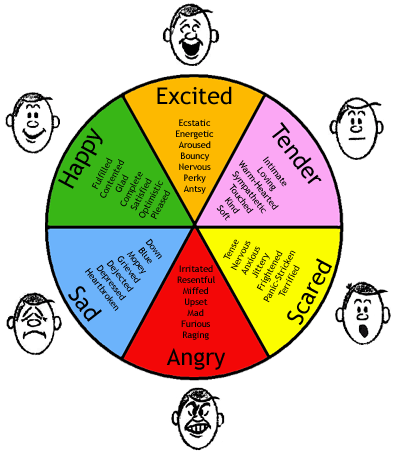Learning how to control your emotions is an essential skill to help you cope with stressful situations. Often, emotional regulation involves reducing the intensity of your feelings. For example, a person grieving a loss will try to down-regulate their sadness by thinking of something funny. Likewise, someone experiencing anxiety can distract themselves by doing something fun. However, emotion regulation can also involve up-regulation, which is beneficial when facing a real threat or challenge.
Self-regulation
The first step to learn how to control your emotions is to recognize your power of choice. Every situation you face presents you with a choice between attack, avoidance, or reactivity. Although your feelings may influence your behavior, they are not the final word. Instead, choose the latter. You are more likely to choose your actions when you are calm and deliberate. Self-regulation will make life easier and build resilience in the face of adversity.
For children, self-regulation skills are important for completing chores and maintaining relationships with friends. In adolescence, these skills will help them maintain lasting friendships and make good choices while out with friends. Even as an adult, these skills are important for coping with challenges and working through challenges. Learn how to control your emotions by following these tips and get the best results from your life. Then, share your knowledge with others.
Self-discipline
There are numerous benefits to having self-discipline to control emotions. According to a study conducted in Australia, leaders who display self-control in managing their emotions have better business results. Employees who work under negative bosses are more likely to recall these interactions and become demoralized. Emotional self-control also impacts the behavior of others, which affects the profitability and productivity of an organization.
Emotional discipline can help you stay present and act on your feelings rather than getting caught up in others’ whims. It also enables you to interact positively with others and see people for who they really are. Emotional discipline can help you navigate difficult situations and resolve conflicts in the most effective manner. However, if you do not have enough self-control, it is likely that you will experience a range of negative emotions.
Practicing habits
Practicing habits to control emotions is essential if you’re struggling to manage your feelings. While emotions play a useful role in our lives, they can also take a toll on our relationships and our emotional health. Vicki Botnick, a Tarzana, California therapist, explains that any emotion has the potential to increase in intensity and can become overwhelming. The good news is that you don’t have to live with these feelings – by practicing emotional wellness techniques, you’ll be able to better control your emotions and start seeing things in a positive light.
First, make a list of the things that make you feel a certain way. These feelings may include fear, anxiety, anger, and frustration. Think about how your actions and reactions affect your relationships with others. Think about how you react when you’re sad or angry. If you’re feeling intense emotions, you’re probably focusing too much on them, which can have a negative effect on your relationships with others.
Meditation
Practicing a simple mindfulness technique can control your emotions. When you are feeling overwhelmed or angry, focus on your breath. By doing so, you will be able to calm your mind and control your reactions. You can also control your heart rate by lowering your blood pressure. By using this technique, you can also learn to manage strong emotions. Here are some tips for beginners. The first step is to find a quiet place to practice. Take at least fifty deep breaths and notice your feelings.
Mediation helps you become more aware of your thoughts. You will become aware of value judgments, clinging, resistance, and insights. You will also become less attached to the things that are making you angry or sad. This can help you manage difficult emotions and become happier. The more you practice meditation, the better you’ll be at managing your emotions. By allowing your mind to be free of distractions, you can focus on the present moment.
Labeling emotions
The process of labeling emotions can be a very powerful tool for coping with emotional problems. It can give you a better understanding of the inner workings of your mind and body. By recognizing the cause of a particular emotion, you can then act appropriately. This can be helpful in navigating conflicts or asserting yourself in the workplace. For instance, if you dread waking up in the morning on Monday, you can label that emotion as “dread.”
Labeling emotions is a powerful tool that can help students understand their current emotional state. Students can use this technique when they are angry, for example, to understand why they are angry and what triggered it. However, labelling is not a foolproof solution and should only be attempted tentatively. After all, even the most experienced teachers are not always able to know what others will feel. In addition, the labelling technique should be used with caution, as the student’s level of understanding is different for each person.









